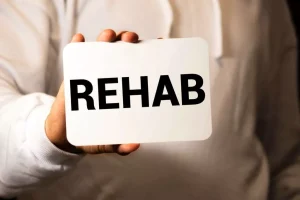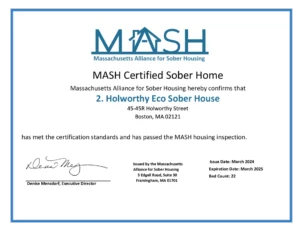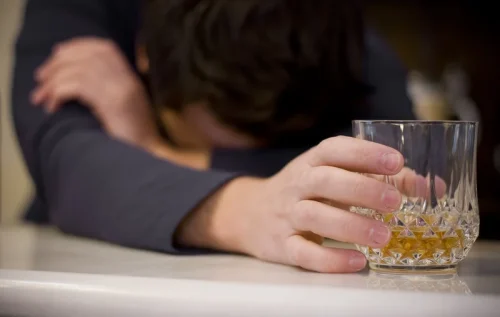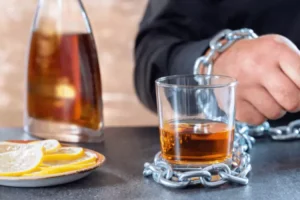
However, there are those in addiction recovery that never get over the impact of their first (and only) relapse, and the plethora of intense emotions that come with it. One way to stop a shame spiral is to recognize the progress you’ve made in your recovery. Too often, people who relapse what to do after a relapse beat themselves up and treat the relapse as a total reset of their sobriety. But by looking at your progress as a whole, you can see that you’re still on an upward trend. Even if you survive, an overdose can leave you and your family members with lots of feelings to sort through.

Life After Relapse — How to Bounce Back and Start Over
- This may vary from person to person and be influenced by things such as extent and length of use.
- By staying vigilant for early signs of complacency and overconfidence, individuals in recovery can take proactive steps to reinforce their resolve.
” However, that is not the most productive way to view such an event. Once you figure out your own triggers, think about something https://ecosoberhouse.com/ you can do instead of substance use for each one. Could you wrap up each day with a long walk instead of a cocktail?

What is the rehab success rate for cocaine?
- It means they have to try again and continue to practice healthy eating.
- With intensive treatment, you have the opportunity to focus fully on your recovery.
- During treatment, clients will learn why they relapsed and take steps to prevent another relapse in the future.
Relapse is a normal part of recovery from addiction to alcohol or other drugs. Addiction is a chronic disease of the brain, meaning it lasts for multiple months and affects the way the brain works. Substances of abuse change the way that the brain operates, causing people to compulsively seek addictive substances despite harmful consequences.

Seek Further Treatment & Support
According to a PubMed study, these medications contribute to improvements in overall medical and mental health and quality of life. Assessing compatibility also involves understanding the therapist’s cultural sensitivity and whether they can relate to your unique experiences, including any past trauma or specific mental health conditions. Choosing the right therapist after a relapse is crucial for a successful recovery journey. It’s important to find a professional who is skilled and a good fit for your needs.

- According to the model developed by Marlatt and Gordon, a relapse begins with a high-risk situation that is followed by a poor coping response.
- Many people emerge from relapse with a fresh scare regarding what they are up against, as well as a deeper commitment to becoming sober.
- • Build a support network of friends and family to call on when struggling and who are invested in recovery.
- But try not to dwell on the negative feelings that will come up.
Individuals and treatment programs that take this view are more successful, and in the long run, those who accept and work to try again after a relapse are more likely to eventually overcome their addiction. Despite the fact that relapse is a well-recognized aspect of recovery from an addiction, many people attempting to quit an addiction will feel they have failed if they relapse. They might abandon their efforts, feeling that quitting is too difficult for them.

Anticipate the next steps you need to take and don’t delay in taking them. Act quickly to focus on your recovery again, so your addiction can’t continue. Taking action immediately after a relapse is vital to getting back on the road to recovery.
One of the first signs of a future relapse is a lack of self-care, and letting people or things get you down to the point where you don’t have time for yourself could have serious consequences on your sobriety. An emotional relapse usually occurs when we are not practicing self-care, start isolating, or start missing the activities that helped us recover in the first place. It’s about creating a lifestyle that can help a person maintain their recovery goals.
A Lapse Doesn’t Have to Be a Return to Addiction
Since roses symbolize healing for me, I took it as a sign of hope … that I won’t plummet too far … there are things in this life that I’m meant to do. If you or someone you know experiences a relapse, there are things that you can do to cope and get help. That’s why it’s important to never use alone and to carry an opioid reversal drug such as Narcan. We do not receive any commission or fee that is dependent upon which treatment provider a caller chooses. The idea behind these rules is that it requires honesty and the ability to understand the nature of addiction and what that looks like for you. The Surgeon General’s report highlights the necessity of a chronic care management model for AUD, which involves ongoing clinical monitoring and support services.
- It can begin with an emotional relapse, followed by mental and then physical relapses.
- A single use might cause a person to feel unmotivated, guilty, or ashamed of their actions.
- One of the worst things you could do is to hide a craving or relapse from the people who care.
- This list only scratches the surface of the many reasons why someone may relapse after drug or alcohol treatment.
- In the absence of an emergency plan for just such situations, or a new life with routines to jump into, or a strong social network to call upon, or enhanced coping skills, use looms as attractive.
Although relapse recovery can be difficult, it is well worth the work. You can take back your life from addiction and get to a place where you feel proud and fulfilled. If you can demonstrate to those closest to you that you are making an effort to include them in your recovery, then you will start to feel more motivated to continue. You will strengthen your bonds, which can support you on your path to lifelong recovery.

 No products in the cart.
No products in the cart.